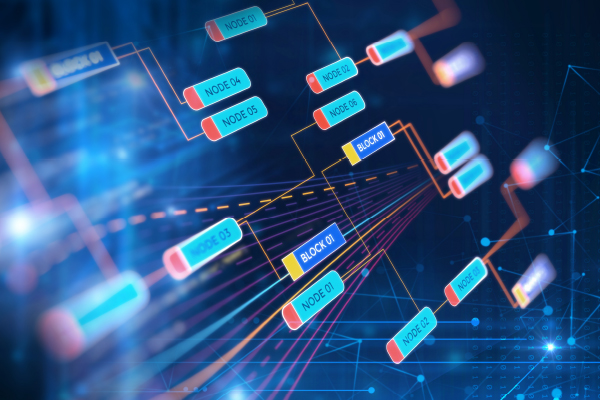Blockchain technology is, according to Timo Gessmann, a director of an Internet of Things lab for the electronics and engineering company Bosch, “like the Internet in the 70s”.
By saying that he means that the technology is very early stage and many people still feel that it is unnecessary or, at least, will not become a mainstream technology.
Gessmann and his colleagues are, however, looking at applications that could see blockchain become as ubiquitous as any widely used innovation you could think of.
The automotive sector is one area where it could have a transformative effect.
“We’re exploring the technology based on concrete, real-life use cases,” said Gessmann, whose laboratory is based at the University of St. Gallen in Switzerland.
“If you think about an electric car, sometimes it needs more energy and you can drive to the charging station. Is it possible that the car, by itself, can buy energy from the charging station and pay for it?
“The car is an economic device and it can ask the charging station for the service. This is what we see with the economy of things.”

Another example could involve paying for a parking space. In the IoT era, this might not need to be done using a digital system linked to a bank account.
“How do you exchange value without hard cash? Blockchain might enable this value exchange,” said Gessmann.
“If you wanted to do payment, maybe you would use online banking. But first you need a bank account, you need a bank, you need to go to the bank and use your ID. You do this to generate trust between you and your bank account.
“But we’re in the era of IoT. There might be things like this smartphone and what would you say – I want a bank account for my smartphone? The challenge is to have trust between things that don’t have any identity.”
Although Gessmann suggests that some might be resistant to blockchain technology, he also said huge interest is developing in its potential applications.
These extend well beyond the automotive sector. Bosch is also looking at how blockchain technology can bring “golden truth” to every party in a lengthy transaction, such as one in the logistics world, where goods might be passed between multiple entities.
“For each [shipping] container you have an average of 21 paper sheets. We evaluate how blockchain can digitise [this],” said Gessmann.
“If it’s in a digital database, every party can see what’s the current state of this container. Normally each company has its own database. Normally you don’t share your own database, but with blockchain, every company has access, but you cannot cheat – you





